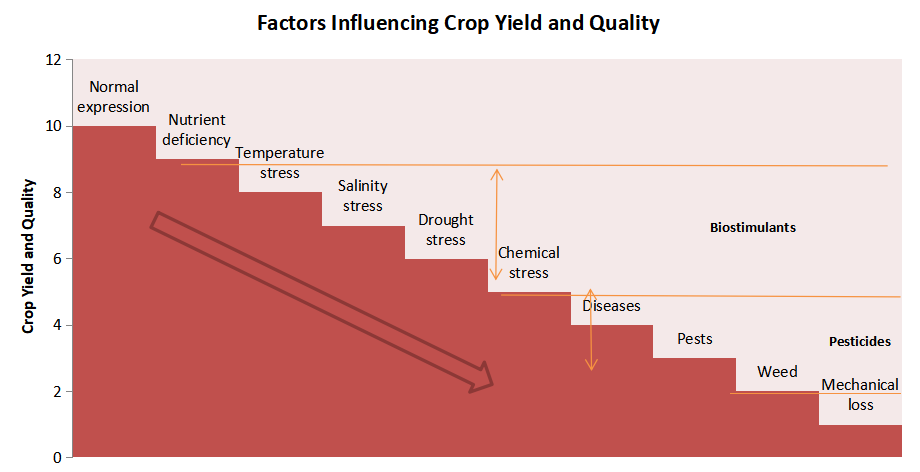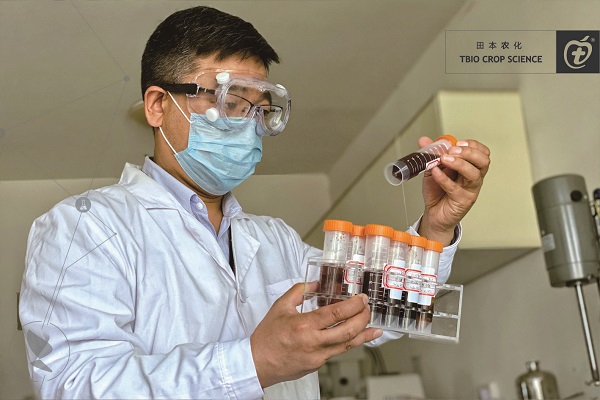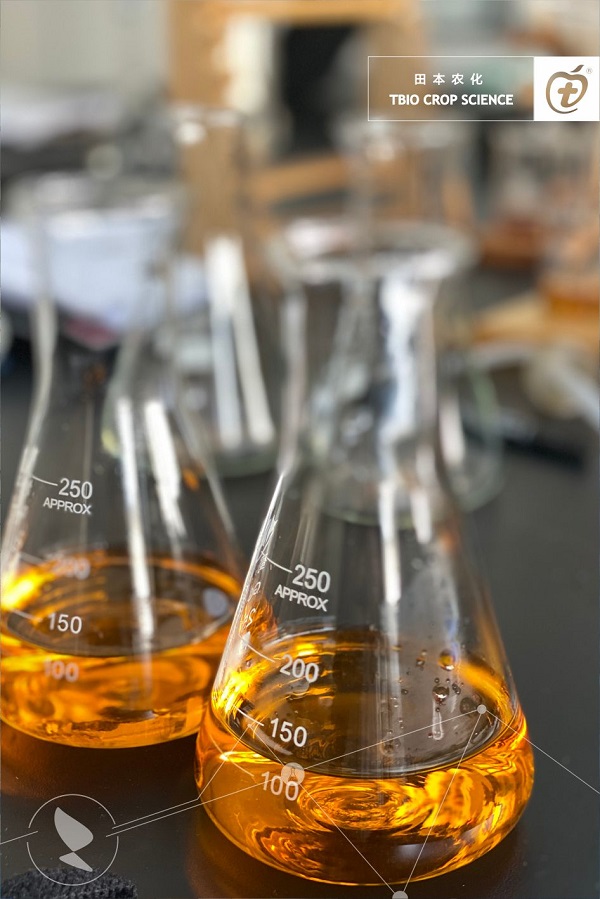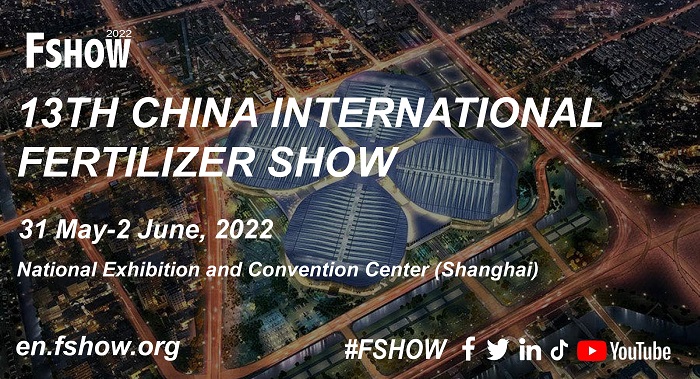
Exhibition time: 17-19 March, 2026 Shanghai, China
 中文
中文

Exhibition time: 17-19 March, 2026 Shanghai, China
 中文
中文

Plant biostimulant is an organic substance that is beneficial to plants’ physiological function, nutrient absorption, abiotic stress resistance and crop quality improvement. Biostimulants include humic acids, algae extracts, peptides, saccharides, etc., and peptides are an important group of biostimulants. The Peptide is a compound formed by α-amino acids linked together by peptide bonds, and an intermediate product of protein hydrolysis. Peptides have rich functions in plants and often participate in plant growth and development or stress resistance processes as a first messenger. Peptides play an important role in signaling in plant growth and development, increasing crop yield, enhancing immunity, increasing fertilizer utilization, and improving quality. TBIO Crop Science started the research of peptides in 2012, with the focus on the synergistic effect of different types of peptides with pesticides.

TBIO found that peptides can demonstrate good synergistic effects with pesticide formulations under stresses
Stresses can induce the occurrence of plant diseases, which, to a great extent, is the result of the combined effect of reduced plant immunity and increased infection ability of pathogenic bacteria under the influence of stresses. There are many types of stress that affect the infection cycle of plant pathogens, such as temperature, moisture, salinity, and light. Many stresses can significantly reduce a plant’s inherent resistance to stresses and, as a result, aggravate the severity of some diseases. For example, low temperature and high humidity can aggravate the development of Sclerotinia spp. Therefore, improving the efficacy of pesticide formulations under stress is the key to solve the problem of the inferior application effect of pesticide formulations.
According to TBIO’s research, though different sources of peptides have varied performance in improving crop stress resistance, they can, to different degrees, increase the photosynthesis of crops under stress conditions such as high temperature and drought, as well as the soluble sugar content and the activity of antioxidant enzymes in crop cells. Besides, they can stimulate the expression of crop stress resistance genes, reduce the content of harmful substances such as reactive oxygen in cells, and protect cell membranes from damage, thus stimulating the stress resistance of crops.
Under stress, the ability of crops to resist diseases and their immunity decrease, with reduced application effect of pesticide formulations. The combination of different selected peptide biostimulants can promote crop resistance, improve the efficacy of pesticide formulations, and reduce the probability of recurrence of pests and diseases. Moreover, crops under stress are more prone to phytotoxicity and have a higher demand for the use of pesticides. The combination of different peptide biostimulants can improve the stress resistance of crops, help crops relieve phytotoxicity, and reduce the occurrence probability of it.
In terms of herbicides, peptides can promote the opening of stomata of weeds under stresses to facilitate substance transport, improve crops’ metabolism and organism performance, and therefore, promote the absorption of pesticides by weeds and kill weeds more quickly. For example, selective herbicides are often used in the 3-5 leaf stage of corn, and improper use of herbicides will constitute chemical stress on corn, which is manifested as slow growth, distorted interior leaves, and yellowing leaves 7-10 days after spraying. It is found that the use of peptides with herbicides on corn can, on the one hand, improve the safety of the crop by enhancing its resistance to high temperature stress, providing it with nutrients, promoting its rapid growth, and mitigating the chemical stress of herbicide; on the other hand, stimulate the opening of stomata at high temperature, promote the absorption of herbicides, and kill weeds quickly.

Peptides can improve the immunity of crops and enhance the control performance of pesticides. As peptides can improve the inherent immunity and stress resistance of crops, they play an important role in the process of “prevention first”.
The cuticle and wax content of berry skin and leaves as well as the composition of the cell wall will affect the physical resistance of grapes to pathogens. The cuticle enhances the hardness of the plant epidermis to form a physical barrier to pathogen invasion, while the wax layer makes the epidermis less susceptible to wetting to prevent the germination of pathogen spores. TBIO found that foliar application of peptide products can stimulate the expression of genes related to cuticle or wax layer synthesis, and promote the formation of a better physical barrier to resist the invasion of pathogenic bacteria or pests.
When the immune response of plants is activated, some common defensive chemicals are produced through metabolic pathways, such as self-generated methyl salicylate, saponin, caffeine, and phytoalexin. Currently, phytoalexins based on terpenoids, stilbenes, flavonoids and alkaloids are mostly studied. Most phycocyanins are synthesized with the secondary metabolites of plants as precursors. Some peptides perform excellently in promoting the accumulation of crops’ secondary metabolites, such as flavonoids, and alkaloids, the synthesis of defensive chemicals, and the generation of systemic resistance response to pathogens.
Therefore, the combination of pesticide formulations with selected peptide biostimulants can realize integrated prevention and control, increase the effective period of pesticides, reduce the recurrence of pests and diseases, and improve the fungicidal and insecticidal efficiency.

Peptides are conducive to the functional diversification of pesticide formulations. The use of peptides of different structures with pesticide formulations can add application effects of pesticide formulations, improve user loyalty, enhance user experience and boost the core competitiveness of pesticide formulations.
· Peptides can promote the absorption and utilization of fertilizers by crops and increase crop yield.
· Peptides can be directly absorbed by foliar cells, resulting in thick and green leaves, enhanced photosynthesis, and increased accumulation of organic matter.
· Peptides can promote fruit development and improve fruit quality.
· The synergistic use of peptides and pesticides can promote the absorption and utilization as well as efficacy of pesticides.
· Peptides can reduce the side effects of pesticides and relieve the phytotoxicity of crops.
The future - the further development of biostimulants. Biostimulants have far-reaching significance for the development of modern agriculture and the sustainable development of the ecological environment. With the increasing demand of people on agricultural safety and quality, there are more and more concerns on safety and efficacy of pesticide formulations. Therefore, it is of great significance to study and explore the synergistic effect of novel biostimulants and pesticides, which is also the understanding and practice of TBIO Crop Science on the sustainable development of modern agriculture. The continued exploration of biostimulant application, including the combination of pesticide formulations and biostimulants, will also vigorously promote the development of the biostimulant sector.
If you are interested in TBIO’s products, please contact: Mark Ma,Marketing Director,business@tbio.cn
